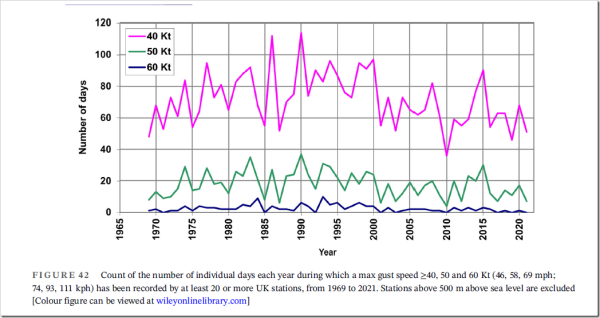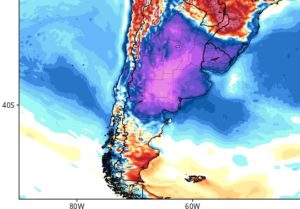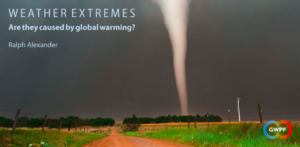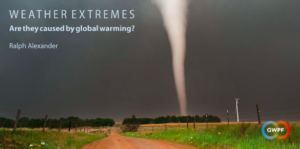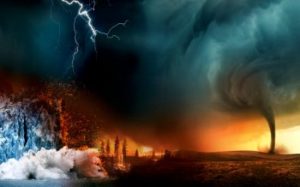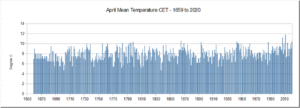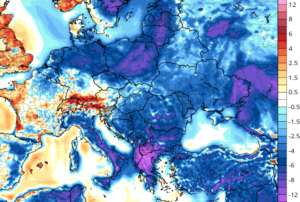by C. Rotter and A. Watts, Dec10, 2025 in WUWT
Weather and climate both operate through natural oscillations—recurring rises and falls that resemble overlapping sine waves rather than straight-line trends. Daily and seasonal weather patterns are the most familiar examples: temperatures warm and cool, storm tracks shift from north to south and then back, and atmospheric pressure systems migrate in predictable cycles. These regular patterns demonstrate that even the “short-term” atmosphere is inherently rhythmic, shaped by the Earth’s rotation (Coriolis force), tilt, and uneven solar heating.
On longer time scales, climate is driven by larger oscillatory systems such as El Niño/La Niña, the Pacific Decadal Oscillation (PDO), and the Atlantic Multidecadal Oscillation (AMO). Each of these produces alternating warm and cool phases with significant impacts on global weather—affecting rainfall, drought, hurricanes, and temperature anomalies. They don’t disappear just because climate discussions focus heavily on greenhouse gases; in fact, these cycles often dominate the year-to-year swings that get labeled as extreme or unprecedented.
Even broader climate variations, such as those tied to Milankovitch cycles, show that Earth’s long-term temperature history is a repeating rhythm of warm and cold epochs—ice ages and interglacials—arising from predictable orbital mechanics. Instrumental records reflect similar behavior: warming and cooling phases in the 19th, 20th, and 21st centuries align well with these natural oscillations. Yet models frequently struggle to capture the amplitude and timing of these cycles, leading to misattribution of short-term warming peaks to human-caused forcing.
…
…

